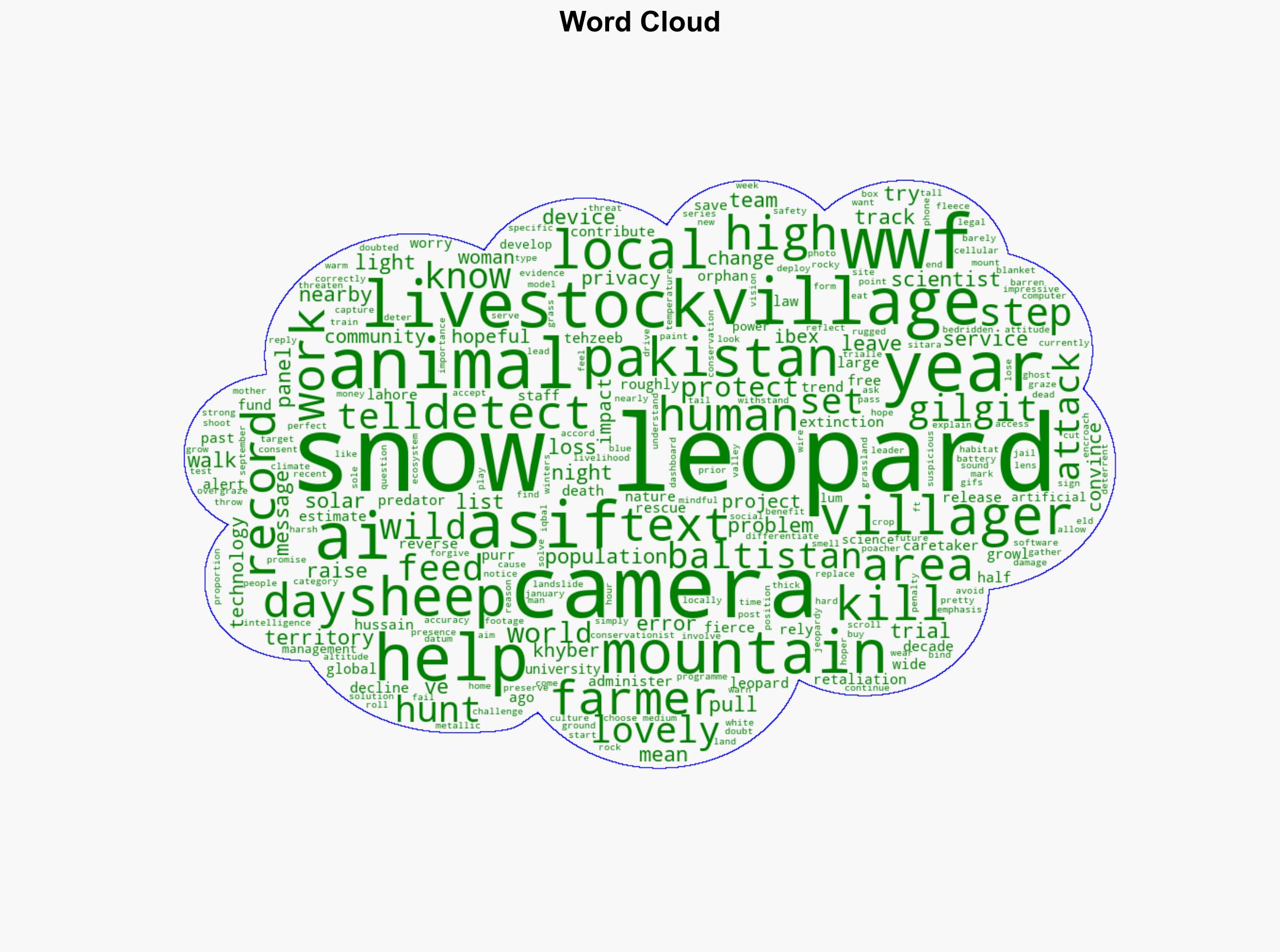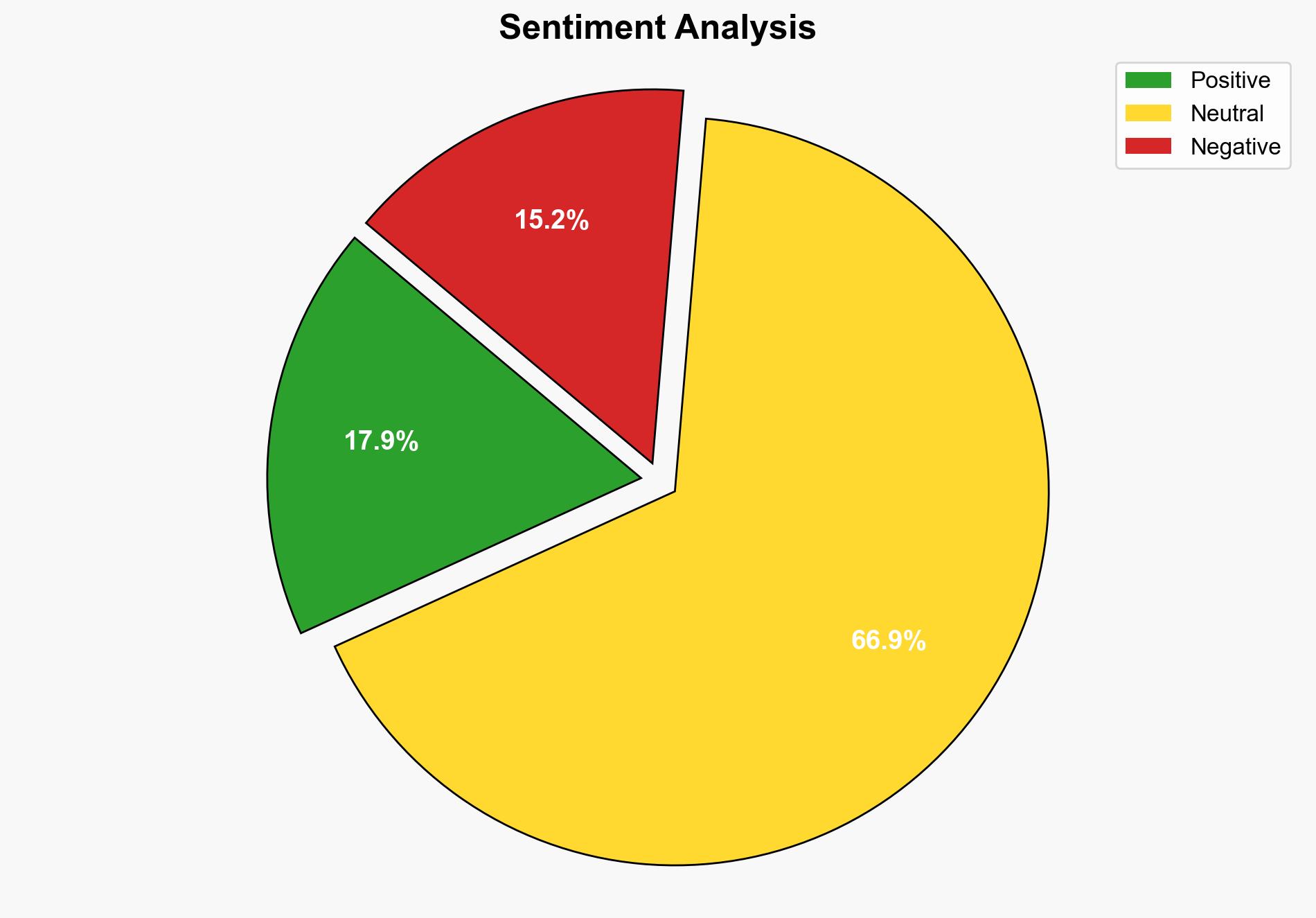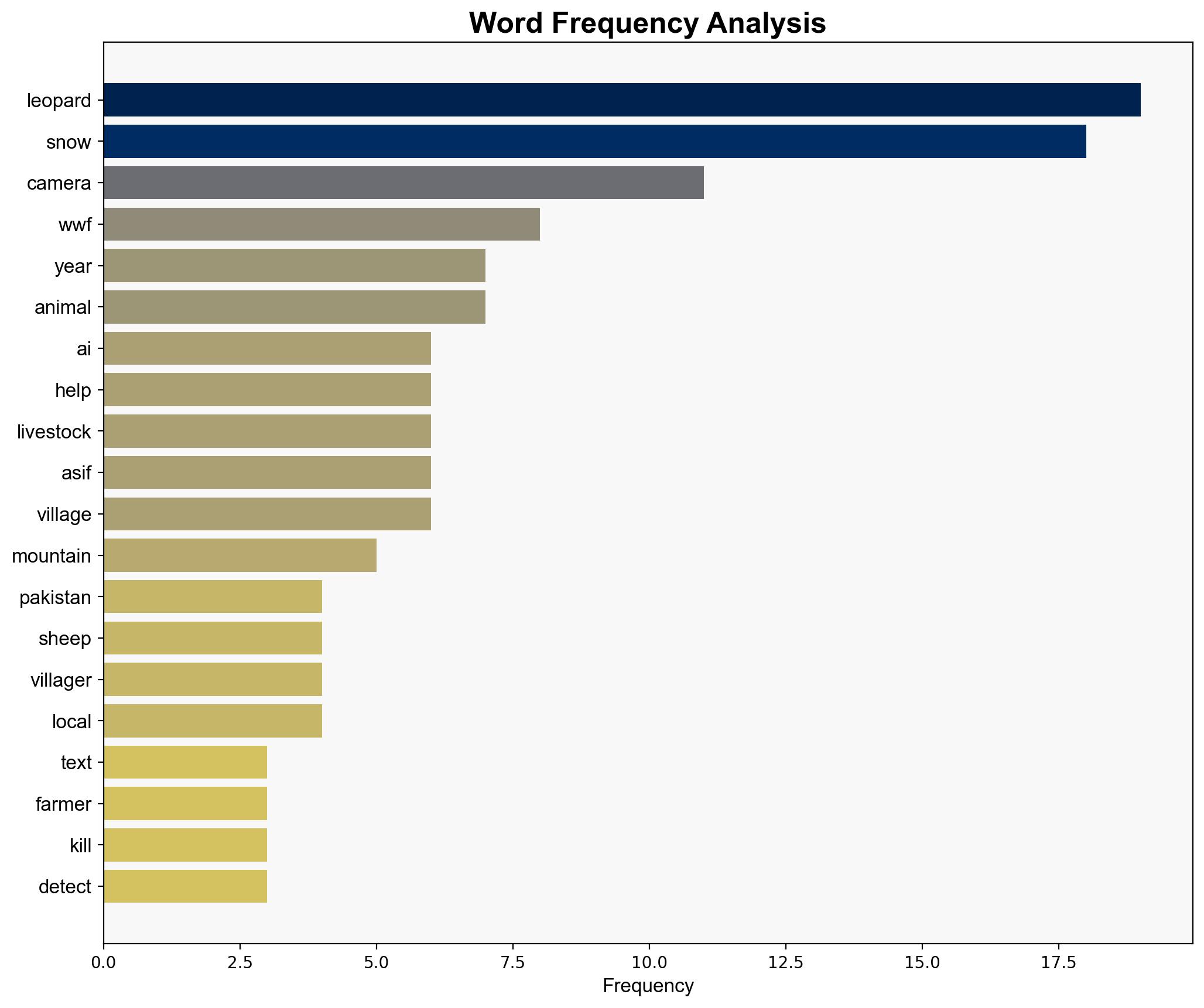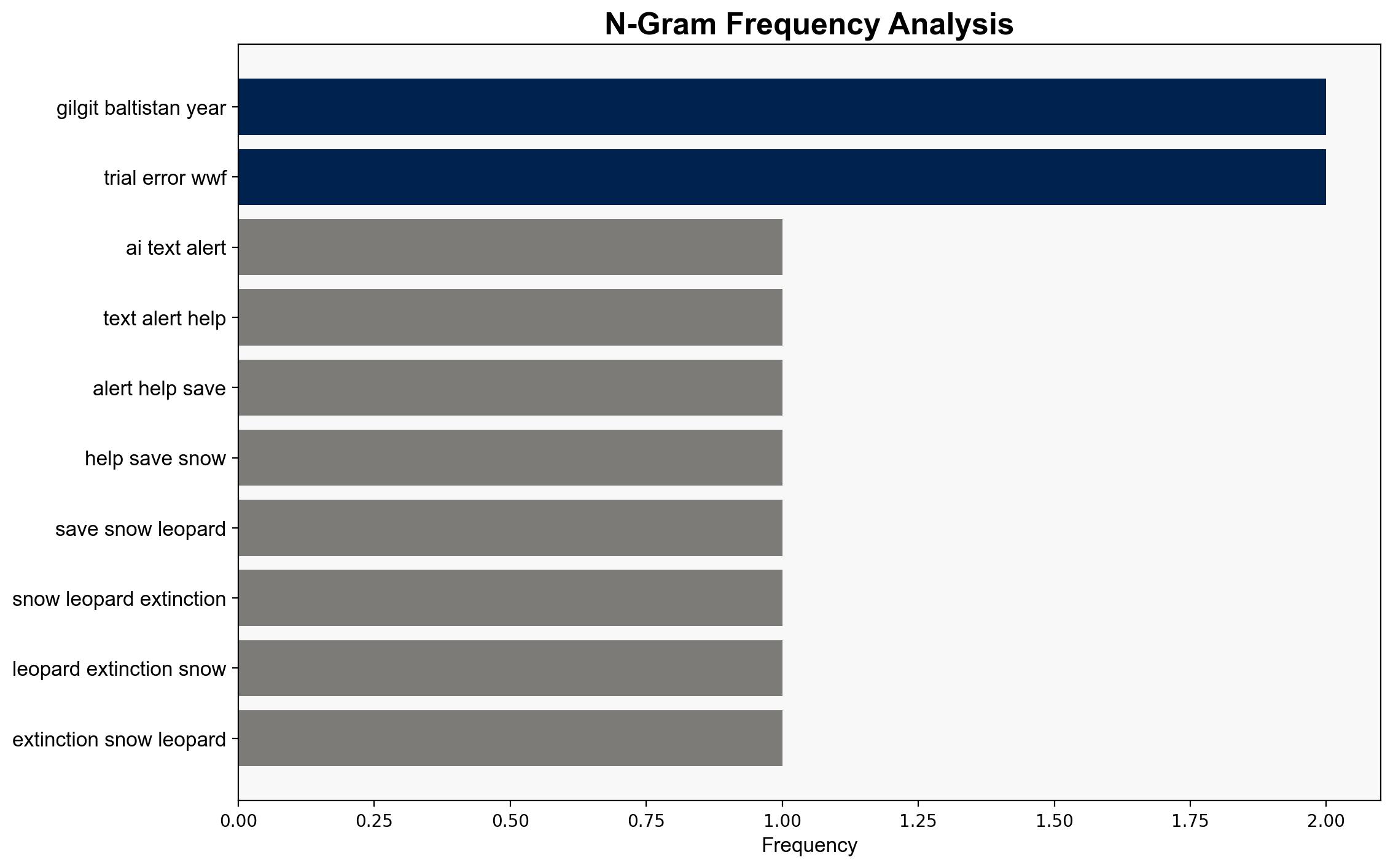Could AI text alerts help save snow leopards from extinction – BBC News
Published on: 2025-04-20
Intelligence Report: Could AI Text Alerts Help Save Snow Leopards from Extinction – BBC News
1. BLUF (Bottom Line Up Front)
The integration of AI-powered text alerts using camera systems in Pakistan’s Gilgit-Baltistan region shows promise in mitigating human-wildlife conflict and aiding snow leopard conservation. This initiative, developed by WWF and Lahore University of Management Sciences, aims to protect livestock and reduce retaliatory killings of snow leopards. While technological challenges and community skepticism exist, the program could significantly contribute to reversing the decline in snow leopard populations.
2. Detailed Analysis
The following structured analytic techniques have been applied:
SWOT Analysis
Strengths: The AI system provides real-time alerts, potentially reducing livestock losses and retaliatory killings. It leverages solar-powered cameras, suitable for remote, rugged terrains.
Weaknesses: Technical issues such as solar panel damage and limited cellular service pose challenges. Community skepticism and privacy concerns may hinder widespread adoption.
Opportunities: Successful implementation could serve as a model for other regions facing similar conservation challenges. It may foster better community relations and awareness of snow leopard conservation.
Threats: Climate change and habitat encroachment continue to threaten snow leopard populations. Community resistance and technological failures could undermine the program’s effectiveness.
Cross-Impact Matrix
The success of AI alerts in Gilgit-Baltistan may influence neighboring regions by demonstrating the viability of technology-driven conservation. Positive outcomes could encourage similar initiatives across the snow leopard’s range, enhancing regional conservation efforts.
Scenario Generation
Scenario 1: Successful deployment leads to a reduction in snow leopard killings and increased livestock safety, prompting expansion of the program.
Scenario 2: Technical and community challenges persist, limiting the program’s impact and requiring additional resources and strategies to address these issues.
Scenario 3: Climate change exacerbates habitat loss, necessitating broader conservation strategies beyond AI alerts to ensure snow leopard survival.
3. Implications and Strategic Risks
The initiative’s success could enhance regional security by reducing human-wildlife conflict, fostering economic stability for local farmers, and preserving biodiversity. However, failure to address technical and community challenges may result in wasted resources and continued threats to snow leopard populations.
4. Recommendations and Outlook
- Enhance community engagement and education to build trust and support for the AI alert system.
- Invest in robust technical solutions to address solar panel and connectivity issues.
- Develop contingency plans to mitigate the impacts of climate change on snow leopard habitats.
- Monitor and evaluate the program’s effectiveness regularly to inform adaptive management strategies.
5. Key Individuals and Entities
Tehzeeb Hussain, Asif Iqbal, Sitara




